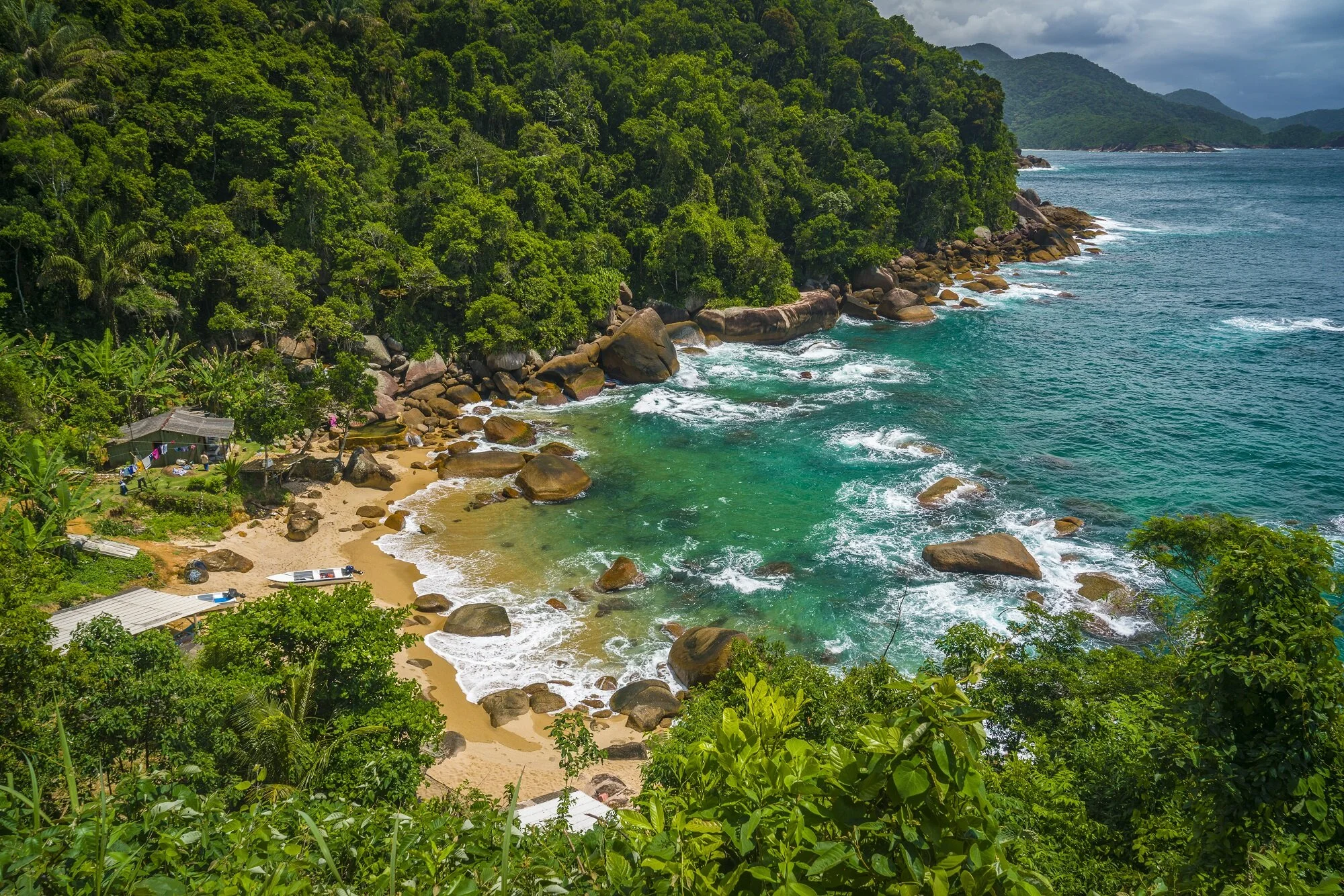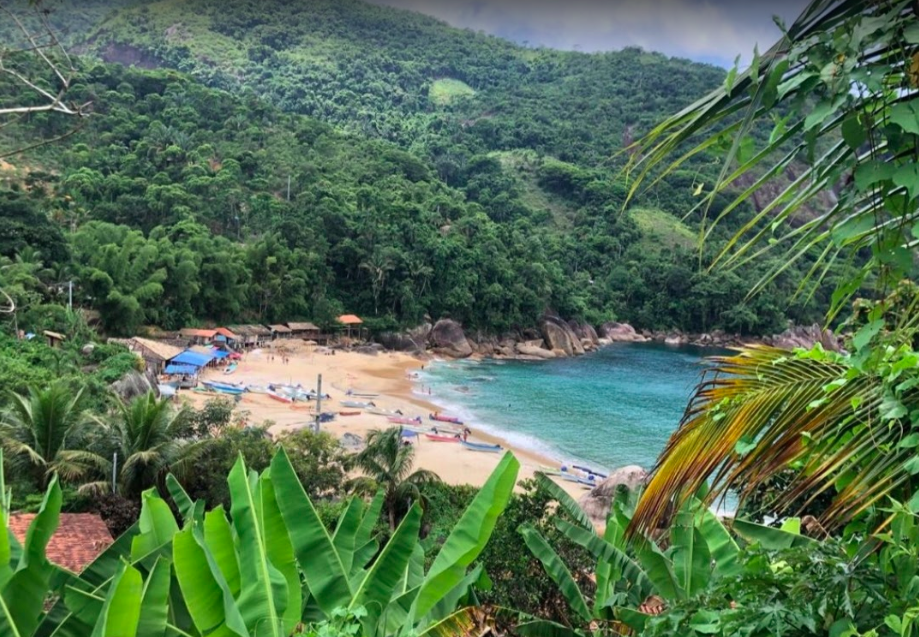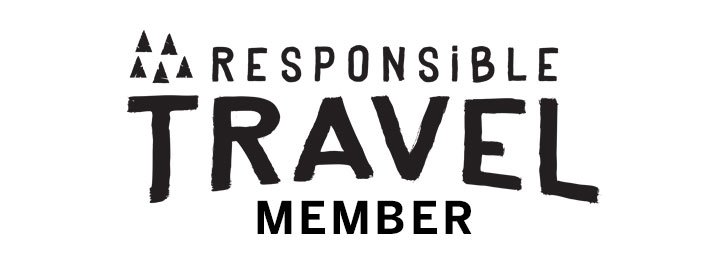Brazil has earned a reputation for being one of the most popular ecotourism destinations in the world. Home to the ecologically diverse Amazon rainforest, locals have worked hard to preserve and protect this natural phenomenon from damages caused by ever-growing threats. Their goal has been to find sustainable ways to engage with tourism while prioritizing the conservation of nature as well as community traditions. If you are looking to discover the Wonders of Brazil in the most sustainable and eco-friendly ways, here are some of our favorite options to consider:
Eco Tourism in Brazil
MACUCO SAFARI
Into the Mist: A Boat Ride Beneath Iguazú Falls
Known as the most exciting and unforgettable tour in the Brazilian part of Iguazú Falls, this boat trip will take you practically under the waterfalls. Being within the Iguazú National Park, one of the Seven Natural Wonders of the world, the attractions and activities for visitors in the region all tend to follow a naturalist approach – aiming to care for and preserve the beauty this planet has to offer us. For example, the Macuco Safari boat adventure brings participants into the forest in electric vehicles, where they will trek and reach the waters, and an ecofriendly boat awaits. This thrilling, one-of-a-kind experience is definitely one you won’t ever forget!
Discovering Brazil’s Pantanal
JAGUAR ECOLOGICAL RESERVE
Located in the middle of the Pantanal region, central west of Brazil, is the world’s largest wetland with an area of 210,000 square meters. Eco Lodge’s and eye towards ecotourism are central to the area’s offerings, as well as unique wildlife experiences. The diversity in the area and in the variety in activities will allow you to admire a vast range of fauna and flora by foot or by vehicle, during the day or during the night, from toucans, owls, tapirs, and no other than the intimidating jaguar. Visiting this are will definitely give you plenty of stories to tell back home!
ECOLOGICAL RESERVE OF JOATINGA
Joatinga Ecological Reserve: A Protected Jewel of Brazil’s Atlantic Forest
Located in the state of Rio de Janeiro within the Cairuçu Environmental Protection Area, which protects the Atlantic Forest biome, is the Ecological Reserve of Joatinga. The reserve comprises 24,600 acres, filled with montane tropical rainforest, as well as a couple of Neoproterozoic granites up to 1,000 meters tall. Joatinga is recognized as one of the best ecotourism destinations in Brazil, filled with activities for hiking lovers, and nature enthusiasts. Not only is the natural beauty of this location like no other, the reserve was also created to protect, reserve and reconnect with the local community called the caiçaras.
UAKARÍ LODGE
The Uakarí Lodge is a floating structure with 5 bungalows and serves as a vessel to the Mamiraua Sustainable Development Institute - an organization that aims to protect and preserve the Uakarí monkeys and their habitat, as well as to improve the living standards of the locals in the area. The lodge is located in the Brazilian state of Amazonas, near the city of Tefé, between three different rivers that connect in a triangle. The lodge is mindfully and sustainable designed: the sun provides the energy, the rainfall is collected and preserved, the sewage is processed and treated before flowing back to the river, and the floors are made from recycled plastic bottles. Their programs vary depending on how long you plan to stay, but activities include hiking, paddling or motor canoe tours, visiting local communities, and even spending the night in a suspended house in the middle of the forest.
SNORKELING IN BONITO
Credit: Rafael de Meira Teixeira
Bonito is a small city in the southwest corner of Mato Grosso do Sul and is considered to be an aquatic playground due to the many water activities available. Owing to the prevelance of limestone, a rock made of ancient fragments of coral and shellfish, the clear blue waters welcome a diversity of fish species and colorful flora. Aiming to preserve the rare beauty and uniqueness of this natural landscape, the authorities have implemented many regulations to take care of the many caves, lakes, waterfalls, rivers and stalactite formations. Most of the snorkeling attractions and activities are inside the park’s boundaries and are regulated by the local ecotourism venues, and much of the surrounding area is off-limits to visitors.
Community-Based Tourism in Brazil
QUILOMBOLA COMMUNITY OF CAMPINHO DA INDEPENDÊNCIA
The Quilombola Campinho da Independência began at the end of the 19th century, after the slave regime lost most of its power. Over the years, the people residing here were able to create a social structure that adapted to modern society while still maintaining their cultural roots. Three former slaves of African descendance received the land from their slaveholder, and proceeded to found the community, always remembering and honoring their struggles and resistance during their years of slavery. Now, visitors are welcomed to join the vibrant community for the day to learn about the history, traditions, art and gastronomy.
Some activities include:
A spiritual cleansing dance called Jongo, which originated as an activity for planning escape strategies.
A basket weaving workshop using many raw materials found in their natural surroundings, like bamboo, banana leaves and vines.
A workshop on seed planting techniques by a well experienced farmer.
GUARANÍ COMMUNITY EXPERIENCE
Currently, there are 51,000 Guarani living in Brazil, making it the largest indigenous group in the whole country and one of the first tribes found by the Europeans arriving 500 years ago in Latin America. The Guaranis were known to be searching for the “land without evil,” a place where people live without pain and suffering for centuries. In stark contrast, they have instead been subject to 500 years of violence, mistreatment, discrimination, deforestation and destruction of their land - leaving them with little opportunities for survival and for keeping Gurarani culture alive.
Fortunately, there has been an increase in organizations looking to protect and fight along indigenous tribes all over the world. Being able to experience the Guarani way of living for a day is an incredible way to connect with old Brazilian customs and an indigenous nature-based ethos.
PONTA NEGRA FISHING VILLAGE
Ponta Negra, Joatinga Peninsula. Credit: Clauber Pereira
Not to be confused with the more popular ‘Ponta Negra’ along Brazil’s northeastern coastline, this small village on the Joatinga peninsula would hardly show up on a google search. Enveloped by a pristine bay and accessible by water taxi or a breathtaking hike along gorgeous coastline and through Atlantic rainforest, this traditional fishing community carves out a simple lifestyle in tune with nature. The people who reside on this secluded beach have recently begun exploring ecotourism offerings in order to connect with modern culture and opportunities, while creating a meaningful bridge to their traditional values.
Organizing a visit to this remote locale may prove difficult, but luckily we are sure to bring you there on our small-group trip to Brazil. In fact, we are lucky enough to be able to stay overnight in this incredible spot, interacting with the villagers while learning local traditions and history from our guide. Enjoy a freshly-caught seafood dinner and an evening dip, followed by the option to wake up (very early!) the next morning to accompany the fishermen of the village into the water, where they will explain their ancient fishing techniques, perfectly coordinated among various boats spread out on the turquoise waters.
Are you convinced to pick Brazil and its many community-based and eco-tourism opportunities for your next adventure? Be sure to check out our Wonders of Brazil itinerary, where you’ll experience FIVE of the incredible options listed above! We'll connect you to the heart of Brazil by embracing its diverse culture, incredible cuisine and the vastness of its natural splendors with plenty of people-to-people experiences, charming B&Bs, local expert guides, and bucket-list adventures along the way.

















Experiencing the exotic otherworldly landscapes of Brazil in itself is worth the trip, but in one week this itinerary will give you the full breadth of what this magnificent country has to offer.